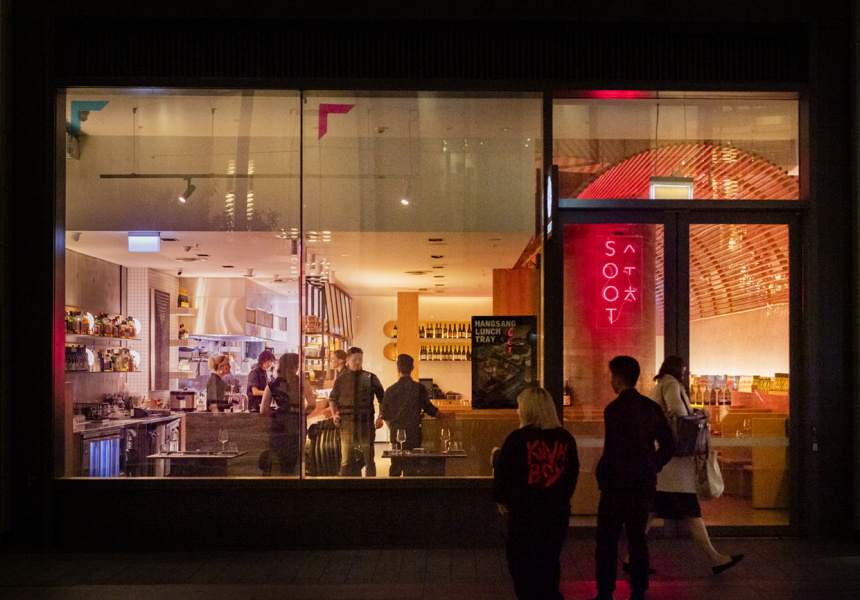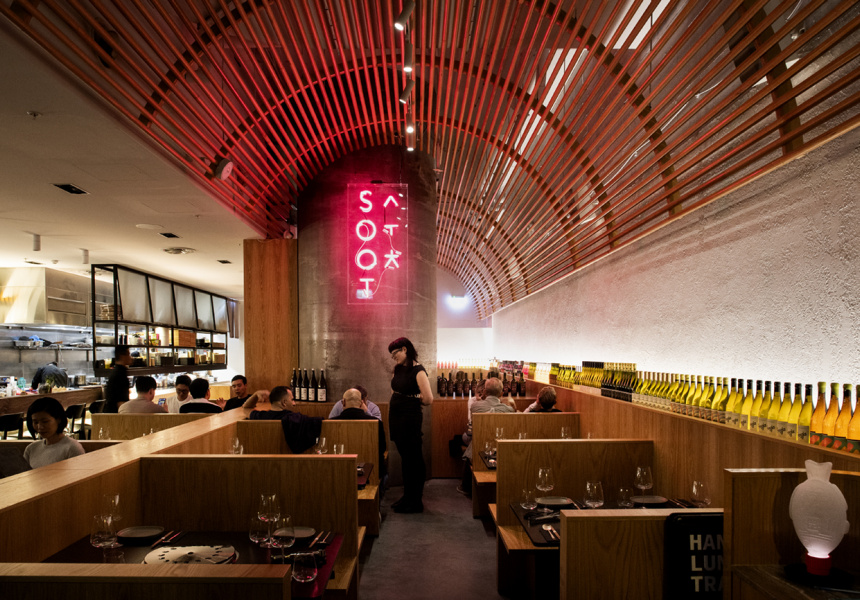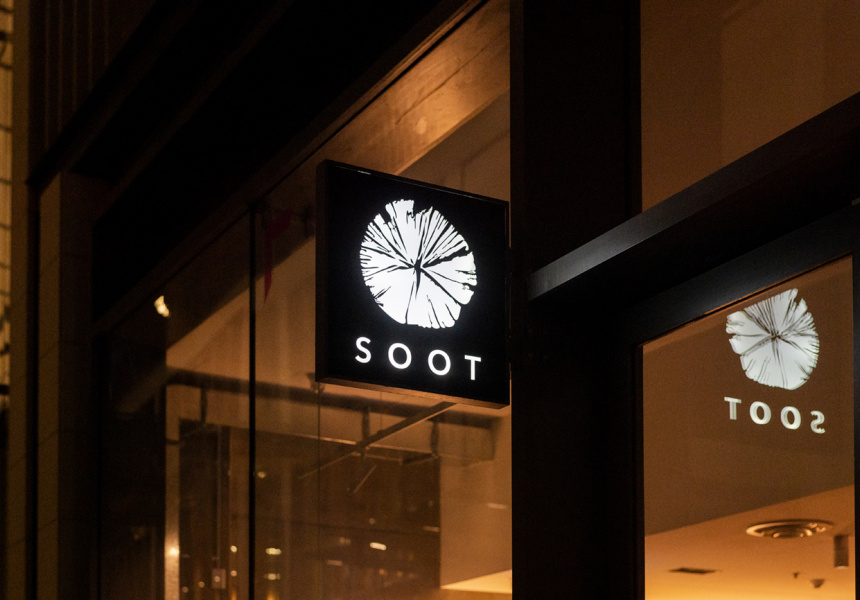Classic Korean barbeque is fast paced.
“Our restaurant Kogi in Market City is a booming business,” restaurateur David Bae tells Broadsheet. “We go through 300 covers a night so we can only give customers 90 minutes: you sit down, get your side dishes and meat and away you go.”
Bae’s new upmarket Barangaroo Korean barbeque, Soot, is more of a sit-and-stay affair. “Soot is on a premium scale. There are cocktails, an extensive wine list with Korean soju. It’s got elements of modern western dining. We go through the normal sequence of having drinks and starters, and the barbeque element [happens] with the mains.”
We think you might like Access. For $12 a month, join our membership program to stay in the know.
SIGN UPThe entrees showcase Australian produce alongside classic Korean ingredients in Korean dishes. Sydney rock oysters are served with mandarin and Jeju Island balsamic mignonette, and hwe (thinly sliced raw fish and seafood) comes with gochujang vinaigrette. There’s also tuna ssambap, “which is basically a bit of rice, minced tuna, scrambled egg mixed with sweet soy and wrapped in nori”. Banchan (side dishes) include kimchi and pickles, plus steamed egg.
Cuts of meat are premium. “Our Wagyu is very well marbled, full blood because that’s the most tender. Kobe is done in our house marinade, which is made from soy sauce and a fair amount of garlic because Korea is the capital of garlic,” says Bae.
Korean barbeque is do-it-yourself, but anyone intimidated by the idea of ruining a beautiful cut of meat on the smokeless grills that are the centrepiece of each table needn’t worry. “It might be a bit unfamiliar cooking your food at your own table, but it’s pretty fun. It’s up to our staff to guide customers through that process if they need help.”
Bae’s Korean hospitality group, Kolture, is relatively new, but it brings together his five existing venues, including Tokki, Kobo and Kinhboy. Leemix, an eight-seat Korean chef’s table experience in Circular Quay, is expected to open in June. The group is both riding the wave of Korean culture coming into the western mainstream and helping to drive its popularity.
“Korea is historically war-torn, which is why it was in survival mode for a long time,” says Bae. “Everyone was so hard-working, now it’s an economic juggernaut, especially for such a small country. We’re starting to see a lot of freedom in Korea – not everything is about working and studying, it’s about creativity blossoming in film, television, movies. People are catching on.”
Another aspect of Korean culture that’s catching on is the country’s food, which has retained its communal nature as it’s crossed borders. Communal dining sits at the core of the Soot experience.
“It’s not a date night menu. It’s about groups of people getting together and having a good time,” says Bae.
Soot
Shop T1.05 100 Barangaroo, Barangaroo
Hours:
Tue to Sat 5.30pm–late



